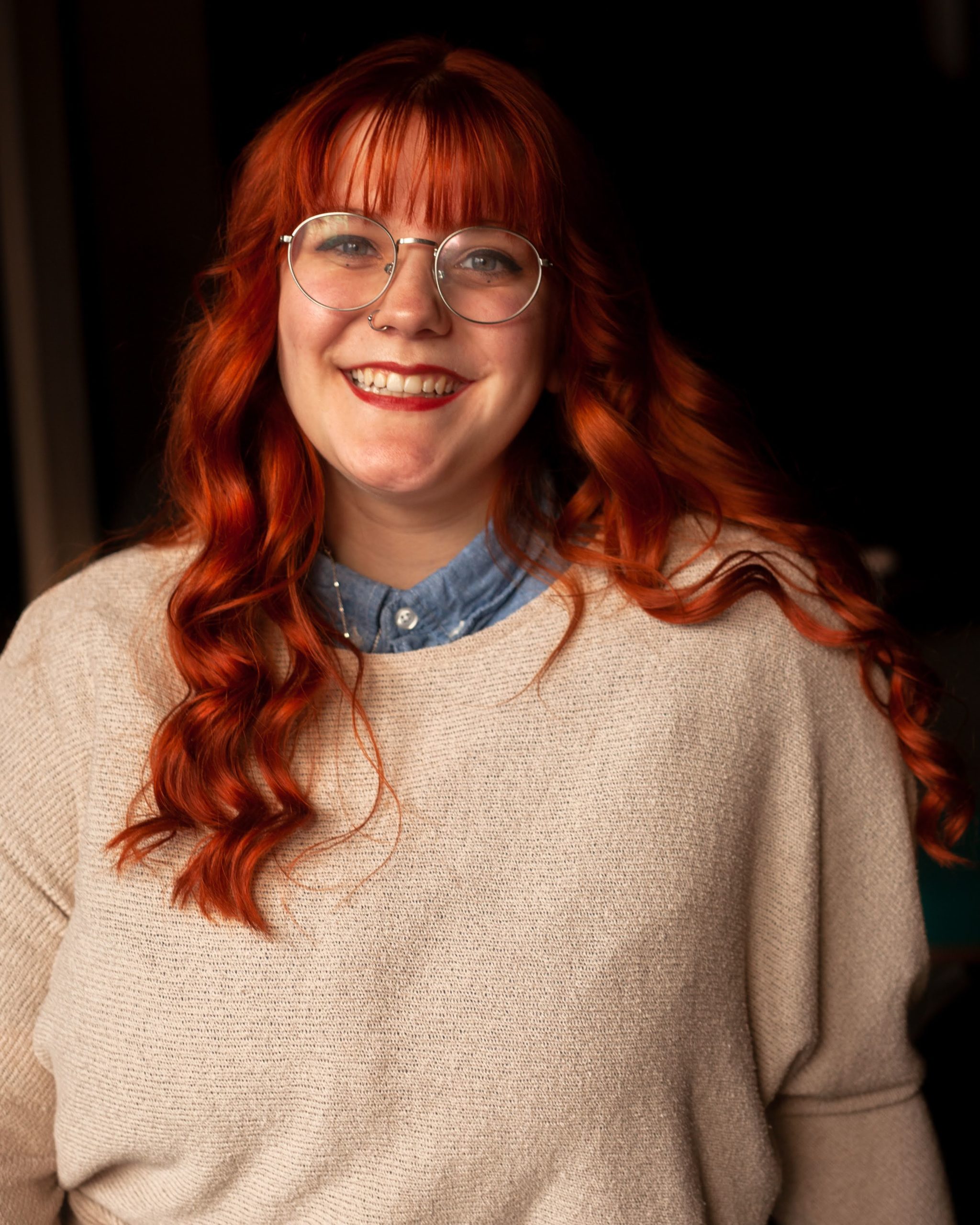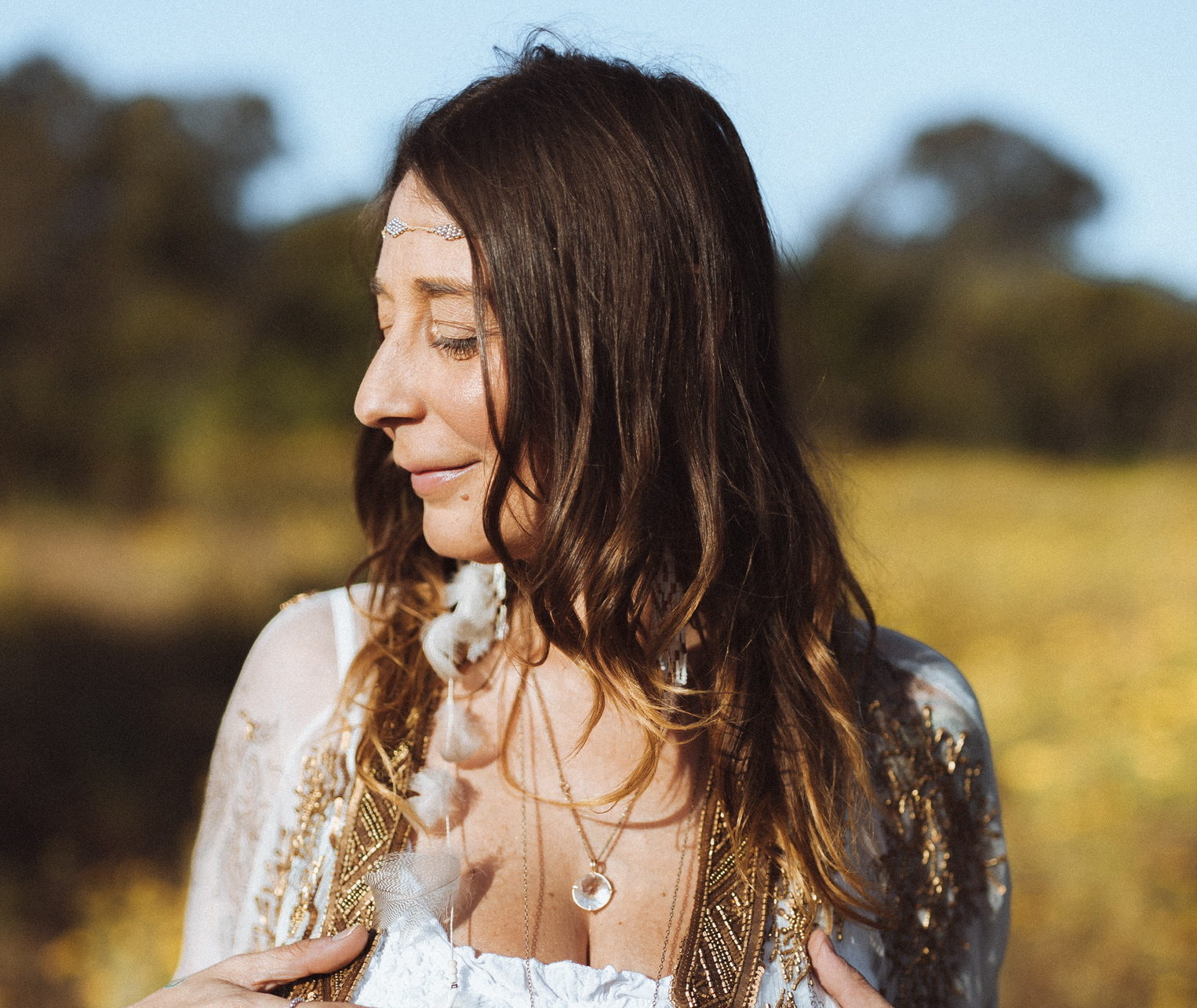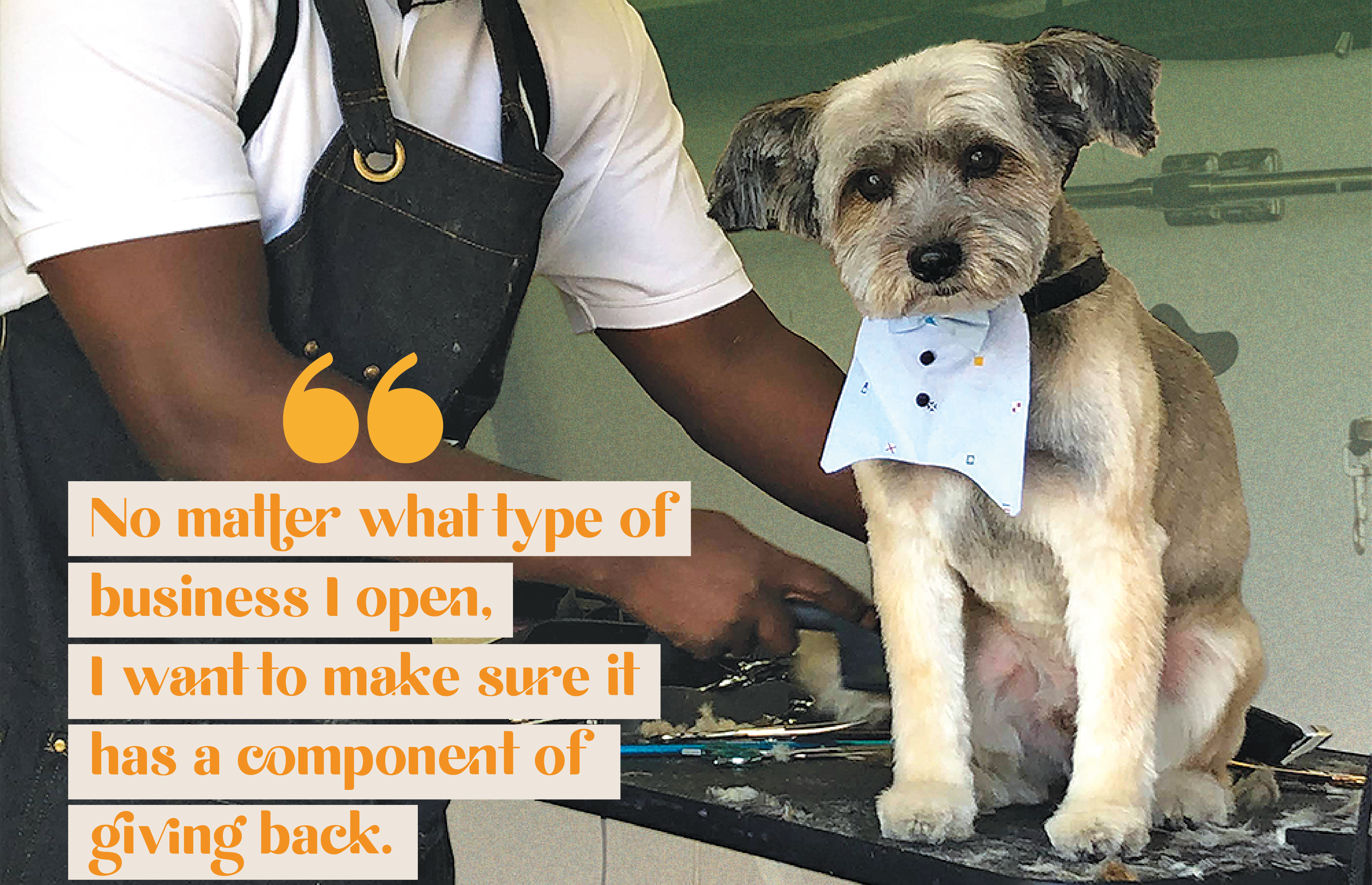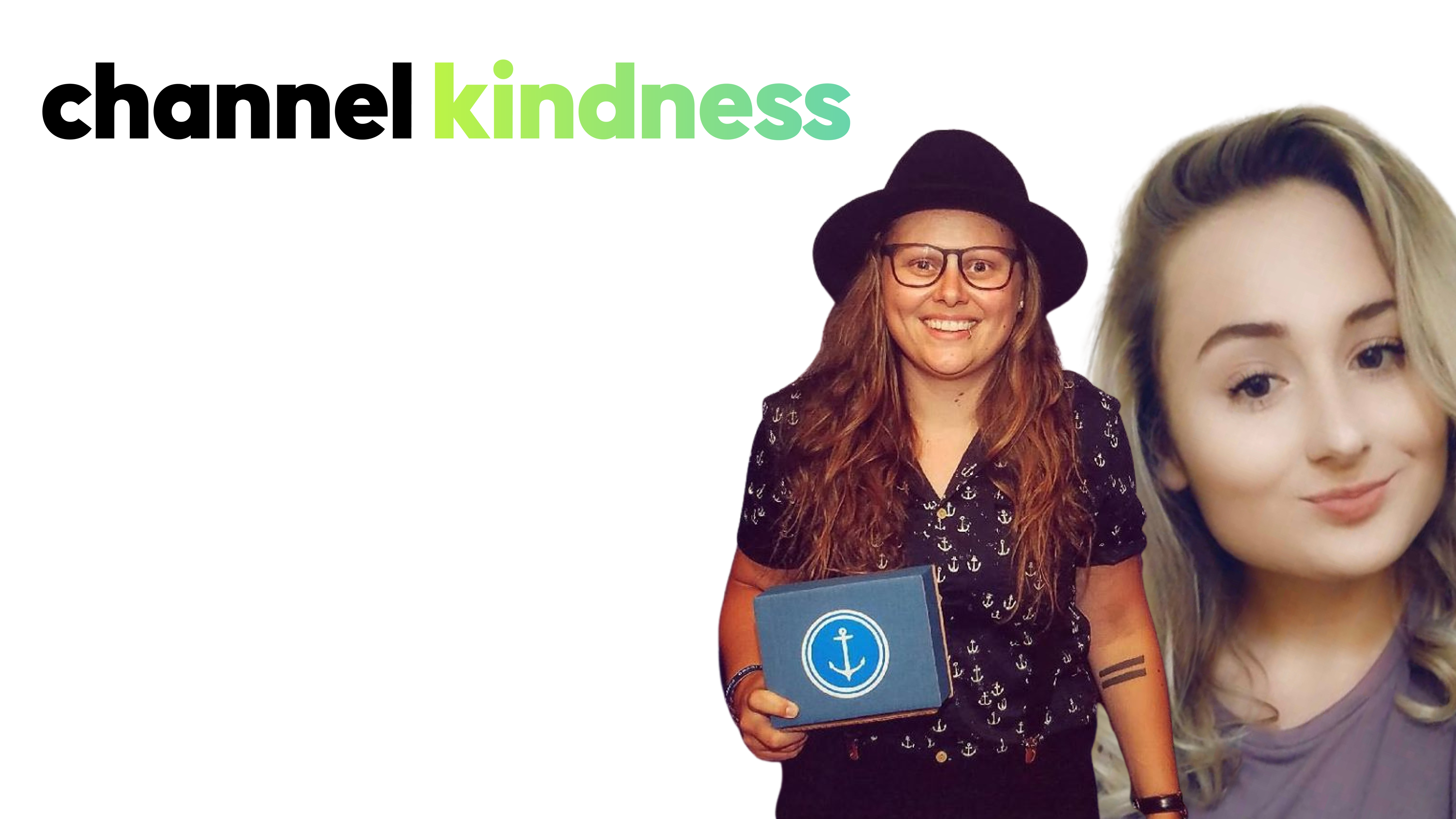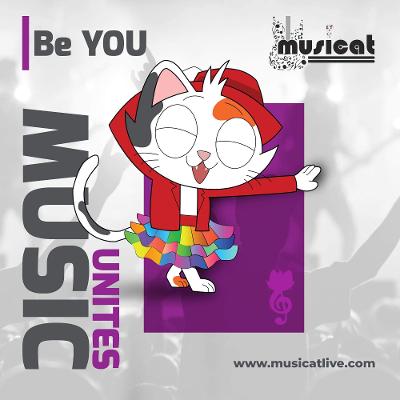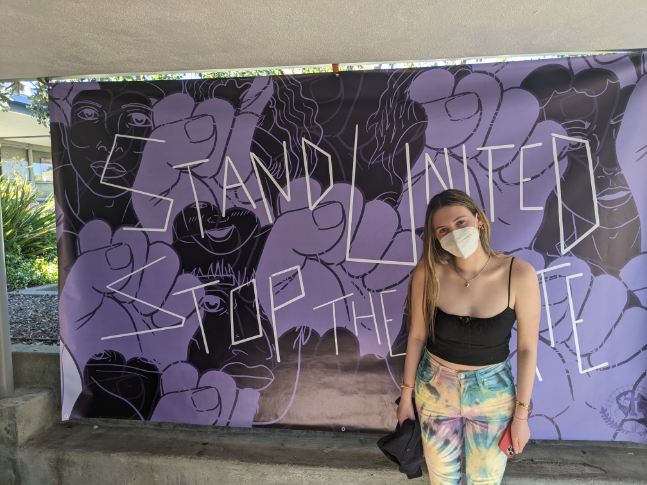Laura Reed has been a hairdresser for 25 years. She currently works as both a hairdresser and barber in Maryland. On her days off, she goes out into her community and cuts hair for people experiencing homelessness. I was so moved when I heard about her world that I knew I had to reach out and talk to her about it. Recently, we got the chance to connect, and I was able to listen and learn leaps and bounds from her.
TMP: I want to start this little conversation by just asking you to tell me a little about your background. What brought you to this work?
LR: I have been cutting hair for a very long time. I worked at a salon for about sixteen years before moving to a different salon where I started by just waiting for my clientele to follow. In that time, I was just looking for things to do so as not to just sit still. I had this trade and skill to offer to others, and I was just really interested in giving back and volunteering. So I went around the neighborhood and found a home for autistic children near where I worked. As someone who has two kids with tourettes, I am always trying to help families that have children with special needs. I spoke to the leader of that home about giving free haircuts to the children, but they couldn’t understand that I was trying to do it for free so they never called me back.
That was when I realized you have to find a niche somewhere if you want to volunteer your special trades. I found this hairdresser named Mark Bustos who was doing some really cool work volunteering his skills and he inspired me to do the same. When I was an EMT firefighter, I would prepare my “jump bag,” a bag that has every possible thing you could need for the emergency situations you may run into. I used this same tactic preparing to cut hair for strangers, so I got a bunch of cordless tools, scissors, clippers, and travel-sized sanitation materials. It all began with me walking up to some people I found who were experiencing homelessness and asking if they needed haircuts. They said yes, and I cut about fifteen people’s hair that day.
After all of that, II walked back to my truck and thought, you know, wow. I was just so moved and I could tell that what I was doing was just this beautiful, compassionate, intimate thing that so many people needed. That was the beginning step that changed my life forever.
TMP: That’s such a beautiful and moving origin story. I can tell why it has stuck with you so strongly! I am in awe of your dedication to this quiet practice. Could you speak more on the transformational aspects of this work, love and human touch?
LR: Absolutely, I mean it goes so beyond cutting hair. I’ve now done over 2,000 free hair cuts over five years across many different cities and states. I have a story that fits really well with the transformational aspect.
I was down in Philly for a hair show, and I got there a bit early so I went and found a little city not too far away called Chester, PA. There were some kids and families playing basketball, so I just took my bag over to some people and got to talking. I told them that I was there for a barber convention and offered to give them some cool haircuts for free. One kid agreed so I started trimming and lining him up when he started to talk to me. He said, “This doesn’t feel like it does in the barbershop. It feels really good. Thank you.” And I was just taken back by his gratitude.
After that, everyone started lining up for haircuts, and they all had questions about why I was there or if I had any ulterior motives. Later down the line, I got to talking to one of the kids when he shared that he wanted to be a football player when he grew up. So I asked him to play catch with me, but he said that he didn’t have a football. I had to go get some stuff for my son anyway so we walked to the store together and I went ahead and bought him one. When we got back, we threw it around and started playing some when I realized I had then missed almost half of the convention!
You know, I meet all kinds of people when cutting hair. I often meet women living in or fleeing from domestic abuse, and I have a couple hundred bags filled with supplies that these women would need to give out. The bags have everything you’d want to see in your purse and are small enough that I can take with me and donate them to local shelters.
All in all, we can’t judge how people got to where they are. All we can do is help each other and act out of love. People need a second chance, and it’s important to nurture and encourage people there. Everyone deserves a chance for rehabilitation. These are people who, five hours before, we wouldn’t have really looked twice at each other walking down the street. It’s moments like these that are life-changing, bridging these gaps. I may only offer haircuts, but the interactions I have are so much more powerful than that.
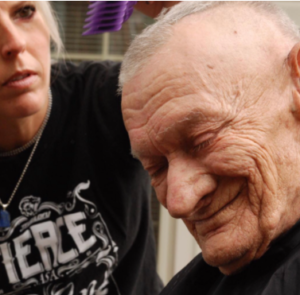
TMP: I absolutely love that you mentioned rehabilitation and the power of social connection. I think that’s true for so much of what we as people do in our lives, but it’s especially evident through the stories you’ve shared. How would you say your mental health and that of those you help in this way are impacted by these interactions?
LR: To be honest, I was in a very dark place years ago when I was younger, but I didn’t really have anybody to show me care and compassion. Living now, that’s the most important thing I can give to somebody. I can’t give these people a job or money but I can help them see their worth through care and compassion. From a complete stranger, that stuff is really, really powerful.
One time in New York, I was cutting this man’s hair and he was coughing a lot. I asked if he was okay, and he shared with me that he just hadn’t talked to anyone in a long time so his throat was sore. Because of that, I really just took my time cutting his hair, and he talked. He talked the whole time, telling me his story and how he was feeling. I could tell that he was lonely and needed a friend so I became that friend. It’s so easy to brighten someone’s day and be that positive force in their life if only you take the time to listen.
TMP: You share such beautiful stories! I am just floored by the compassion you share with others and how you move through the world. I’d love to just hear more about your world perspective generally. Are there any principles, values, or concepts you hold close?
LR: For one, I personally feel like I’m really fortunate to be here, so every day for me is like a gift. I came from a deep, dark place and sometimes I feel like I’m just constantly running, sometimes it’s running from my past or running from demons. The question then is, “Do I choose to let it consume me or do I keep running forward?” I realized recently that it’s not running away, but it’s approaching something better.
I am really lucky that the people I surround myself with are really good and positive people. It helps me to keep moving forward and try harder every day. I mean, that’s why giving back just keeps me going. I haven’t cut hair in two months because of the pandemic, and I can feel it in my heart. I do this work for myself as much as I do it for other people.
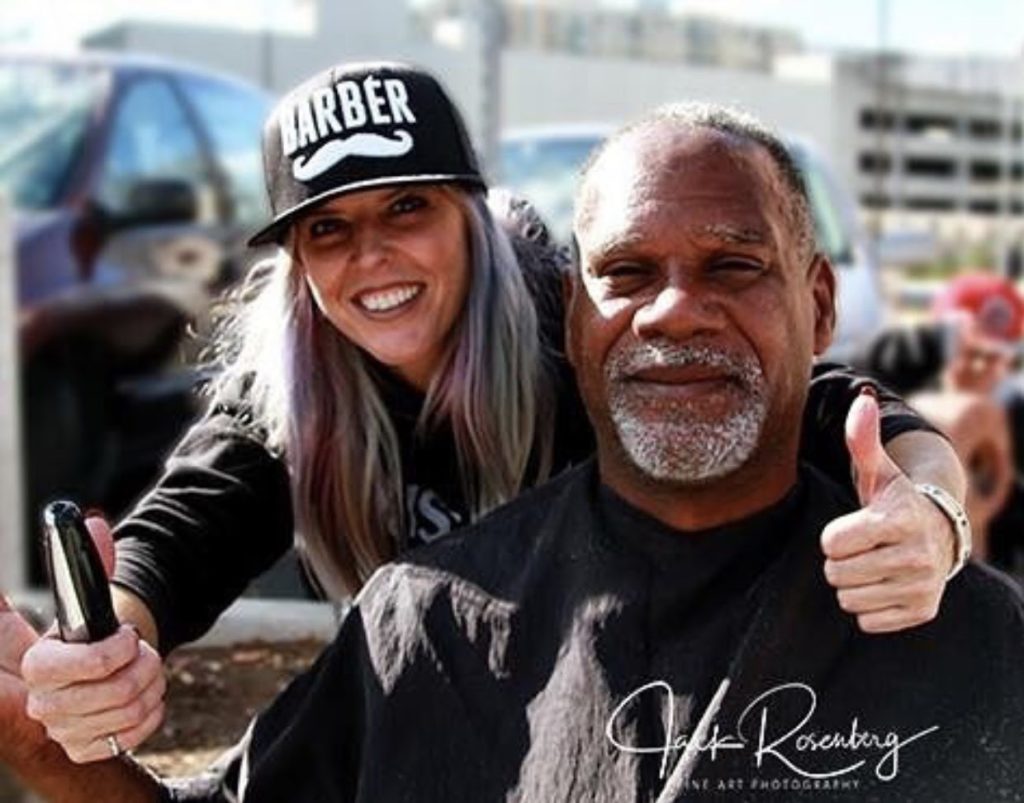
TMP: Gratitude is an essential part of my day, and I love that it’s so important to you too! On that note, I’d love to just take a minute and talk gratitude. It might be connected to what we’ve talked about here, or it might be something entirely different, but what are you grateful for today?
LR: Today, I’m grateful that I can use this time right now as time off. I’m grateful to be away and have the support of my family to come home to. I’m grateful to have people that care about me and love me.
TMP: Finally, what would you recommend to those who want to help but don’t have a certain skill or trade to offer?
LR: Honestly, it was really hard for me to find this. I’ve always wanted to help others, but I quickly learned that it can take time to figure out how YOU want to make a difference. But like the other day, I just read about this young person that was making art packages for foster children. I mean, you can find really great people online so use that as inspiration to figure out what moves or drives you.
And involve others in the process! I always had my daughter help me brainstorm how to help others, whether it was making bracelets for neighbors in her grandmother’s nursing home or writing kind notes. It’s really as simple as smiling at people, even with masks. You can still see someone’s cheeks rising and their eyes scrunching. Hold the door for someone. Say hi to a stranger. Invest in your positive energy. Do these little things and teach them to younger kids so we can keep creating this kind world.
Thank you to Laura Reed for this conversation. I hope you all can take these stories and move through the world with a bit more compassion and care. Thank you for reading, and take care of yourselves.




